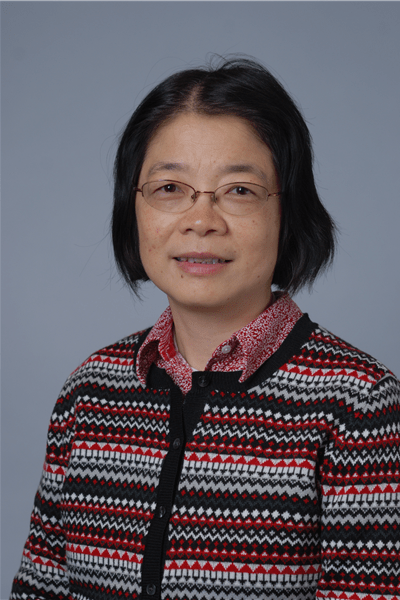
Lei Wei, PhD
Professor of Pediatrics
Adjunct Professor of Anatomy, Cell Biology & Physiology
Bio
- B.S.: University of Paris VI, Paris, France
- Ph.D.:Univeristy of Paris VI, INSERM U. 36, Paris, France
- Postdoctorate: Institute of Biosciences and Technology, Texas A&M University, Houston, TX
| Year | Degree | Institution |
|---|---|---|
| 1995 | Postdoctoral Training | Texas A&M University |
| 1991 | PhD | University of Paris |
| 1986 | BS | University of Paris |
Our research is focused on understanding the molecular basis of cardiomyocyte death and cardiac fibrosis associated with cardiac injury and heart failure. Ongoing projects investigate role of Rho/Rho kinase signaling cascade in cardiac development and cardioprotection. Work is focused on establishing the molecular mechanisms by which the two Rho kinase isoforms, ROCK1 and ROCK2 regulate pro-apoptosis or pro-survival signaling cascades in cardiomyocytes subjected to congenital or acquired injury, with the notion of validating the therapeutic potential of ROCK chemical inhibitors. The goal is to identify new therapeutic targets for disease prevention and treatment, especially, for heart failure in both developing and adult hearts.
In addition, since Rho/Rho kinase signaling pathway has been involved in a broad spectrum of human diseases, ongoing collaborative researches with many outstanding researchers seek to understand the role of Rho/Rho kinase in cancer, hematologic disease, metabolic disease, immunologic disease, and stem cell biology. We are particularly interested in investigating roles of ROCK isoforms in insulin resistance, obesity, diabetes, metabolic syndrome, and associated cardiovascular complications. The goal is to identify new therapeutic targets for disease prevention and treatment, especially, for metabolic diseases related with insulin resistance and obesity.
Other studies focus on understanding the common and isoform-specific roles of ROCK1 and ROCK2 in regulating fundamental cellular functions such as actin cytoskeleton dynamics, cell adhesion, proliferation, motility and survival under stress conditions. ROCK pan-inhibitors (such as fasudil, approved in Japan for cerebral vasospasm) have demonstrated beneficial effects in preclinical models and clinical trials of various diseases, especially in cardiovascular diseases. However, safety and efficacy remain as significant concerns due to the non-selective inhibition of ROCK1 and ROCK2, as well as the non-specific inhibition of other kinases, by these pan-inhibitors. The information derived from our studies should be very useful for better evaluating beneficial and possible side effects of ROCK inhibitors in animal and clinical studies and for supporting the development of isoform-selective ROCK inhibitors.
